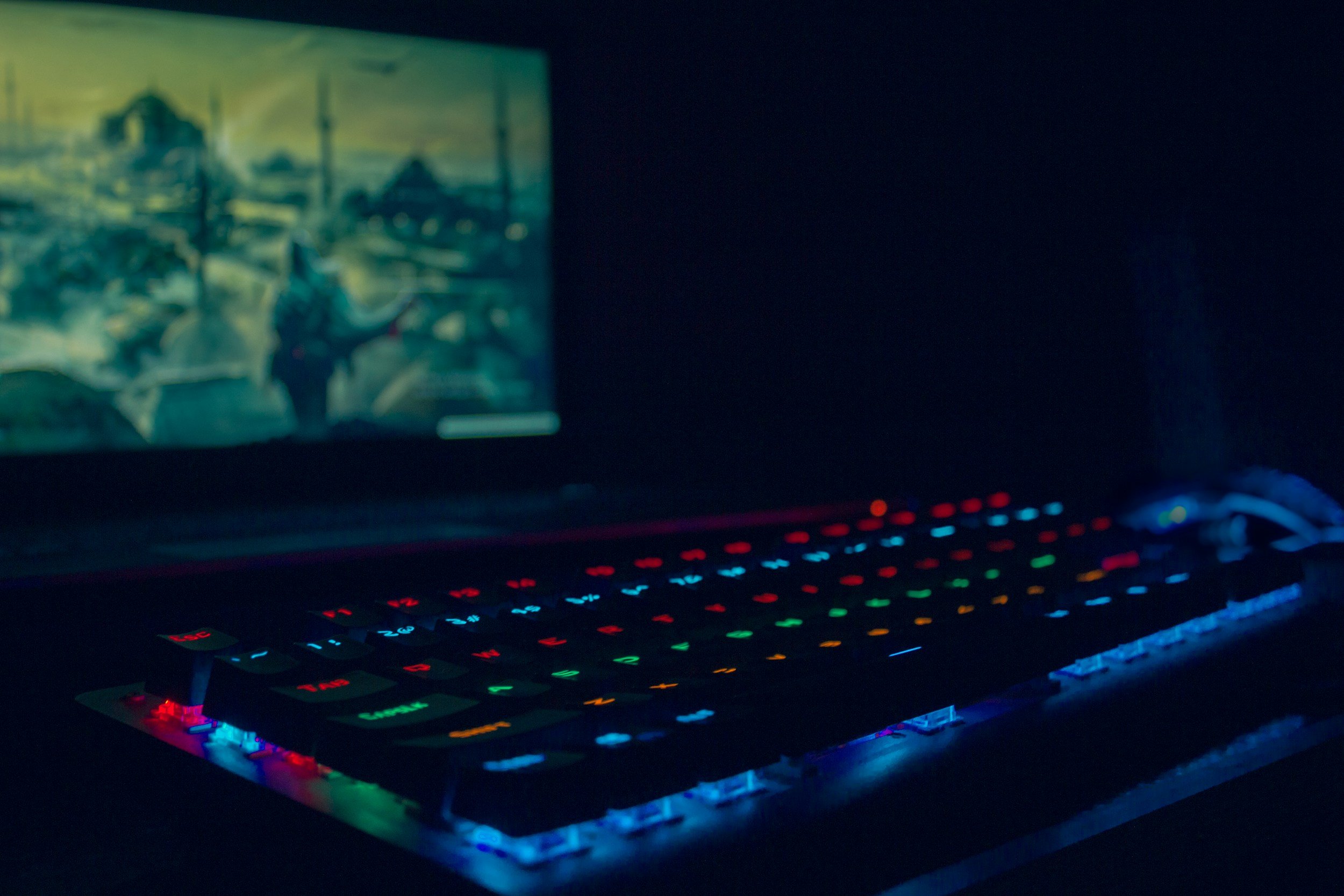Fundamental Attribution Error in Multiplayer/PvP Video Games: A Cognitive Bias in Digital Competition
The rise of multiplayer and player-versus-player (PvP) video games has transformed the way individuals interact in digital spaces. Competitive environments such as League of Legends, Valorant, Overwatch, and Call of Duty demand fast thinking, team coordination, and constant decision-making. Amid these pressures, psychological tendencies can profoundly shape how players interpret the actions and intentions of others. One such tendency is the Fundamental Attribution Error (FAE) — the inclination to attribute others’ behavior to their character or personality while underestimating external, situational factors. In multiplayer games, this cognitive bias contributes to toxicity, miscommunication, and impaired teamwork.
This essay will explore the Fundamental Attribution Error in the context of multiplayer and PvP video games. It will define the bias, provide real-world and in-game examples, analyze its psychological roots, discuss its effects on player behavior and game communities, and offer strategies to mitigate its impact.
Defining the Fundamental Attribution Error
The Fundamental Attribution Error (also called the correspondence bias) is a concept in social psychology describing a common mental shortcut in how people explain others' behaviors. Coined by Lee Ross in 1977, the bias reflects a human tendency to believe that other people’s actions reflect their stable internal traits, rather than being shaped by external circumstances.
For example, if a teammate in Valorant fails to defuse a spike in time, others may conclude, “He’s stupid,” rather than considering, “He might have lagged,” or “He didn’t hear the countdown because of poor audio settings.” This misjudgment is often quick, emotionally charged, and resistant to counter-evidence — especially in fast-paced, high-stakes environments like competitive games.
Psychological Foundations of the Error in Gaming
Several cognitive and environmental factors exacerbate the Fundamental Attribution Error in PvP games:
Cognitive Load
Fast gameplay increases cognitive strain, limiting players’ ability to process complex situational data. Under stress, players default to simplistic explanations.Anonymity and Lack of Context
Unlike face-to-face interaction, online games often strip away cues like tone, facial expressions, and background information. Players have little data to explain behavior, leading them to fill in gaps with assumptions.Egocentric Bias
Players are more aware of their own challenges (bad ping, distractions, fatigue) but assume others act with full control, which feeds into biased attributions.Competitive Emotion
Anger, frustration, and disappointment during matches increase impulsive thinking, making players more likely to assign blame and less likely to give others the benefit of the doubt.
Manifestations of FAE in Multiplayer and PvP Games
1. Blaming Teammates for Mistakes
One of the most visible effects of the Fundamental Attribution Error is how players interpret failure. A missed shot, a late rotation, or a failed ability cast is quickly chalked up to incompetence or trolling.
Example: In Overwatch, if a support hero is out of position and dies early, the team may accuse them of “throwing” instead of considering they were chased off by flankers or had no peel from tanks.
Consequence: This fosters resentment, reduces team morale, and escalates to flame wars — which statistically correlate with reduced win rates.
2. Misjudging Player Intentions
Players often assume malevolent intent when a teammate doesn’t cooperate, rather than considering that the teammate may lack information or experience.
Example: In League of Legends, a jungler not ganking top lane is often labeled selfish or inattentive, even though they might be busy countering an enemy invade or helping bot lane.
Consequence: Misattributions lead to poor communication and game-throwing behavior (e.g., refusing to group or help a teammate out of spite).
3. Ignoring Technical or Real-Life Factors
Players rarely consider that others might be facing technical difficulties or real-life distractions.
Example: A player with high latency might miss critical inputs or respond slowly. Rather than assume lag, teammates may accuse them of being “clueless” or “not trying.”
Consequence: This dehumanization contributes to toxic cultures that lack empathy and mutual support.
4. Stereotyping Based on Rank or Profile
Many players infer traits like skill, intelligence, or attitude based on someone’s rank, username, or avatar — before any meaningful interaction.
Example: A bronze-ranked player in a platinum lobby is often assumed to be incompetent, regardless of their actual performance in that match.
Consequence: Prejudice and confirmation bias take root, encouraging gatekeeping and player exclusion.
Community and Cultural Impact
The accumulation of FAE-driven interactions has long-term effects on gaming communities:
1. Normalization of Toxicity
When quick judgments become routine, they solidify into cultural norms. Terms like “noob,” “feeder,” and “bot” become shorthand for personal attacks. These labels rarely reflect full context and discourage constructive feedback.
2. High Churn in New Players
New players who make innocent mistakes are often judged harshly and personally attacked. This drives newcomers away and increases game churn.
3. Suppression of Teamwork and Communication
Players may withhold communication out of fear of judgment. Others may avoid taking risks or trying new roles due to fear of being blamed — even when mistakes are situational.
Comparative Analysis: FAE in Casual vs. Competitive Modes
FAE is more pronounced in ranked/competitive modes than in casual play due to:
Higher stakes: Personal ranking or reward is on the line.
Heightened emotions: Winning or losing affects ego and investment.
Team reliance: Players have less individual control over outcomes, increasing blame on others.
By contrast, in casual modes, the lower pressure environment allows players to be more forgiving and exploratory.
Examples in Play
"Blaming the Bottom Fragger" in Valorant
Players at the bottom of the scoreboard are often targeted as the reason for a loss, regardless of whether their role was less kill-oriented (e.g., support or utility characters). Players rarely consider that other teammates may have misplayed more critically or that the bottom fragger may have been focusing on callouts, utility, or information gathering.
League of Legends Jungler Blame Culture
Junglers are often blamed when a lane loses, regardless of the laner's own actions (e.g., poor trading, lack of warding). Players attribute responsibility to the jungler without accounting for cooldowns, jungle timers, or enemy presence, embodying the Fundamental Attribution Error on a systemic level.
Mitigation Strategies
Reducing the impact of the Fundamental Attribution Error requires both design-level and community-level interventions:
1. Game Design Approaches
Transparent Status Indicators: Ping displays, latency indicators, and network warnings help teammates understand technical limitations.
Contextual Statistics: Showing more nuanced performance metrics (e.g., vision score, objective control) reduces reliance on kill/death ratios as sole indicators of value.
Positive Reinforcement Systems: End-of-game honor systems or commendations encourage players to look for redeeming qualities in teammates.
2. Player Education and Community Norms
Awareness Campaigns: Tutorials, tooltips, or loading screen messages can teach players about common biases.
Influencer and Developer Messaging: When top streamers or developers speak against toxicity and model empathetic behavior, communities begin to mirror those standards.
Mentorship and New Player Support: Veteran players can be rewarded for guiding or mentoring new ones, reducing the bias against inexperienced teammates.
Simply Put
The Fundamental Attribution Error is a pervasive cognitive bias that shapes how players interpret each other’s actions in multiplayer and PvP video games. By attributing mistakes to personality flaws rather than situational constraints, players foster toxicity, diminish teamwork, and contribute to negative gaming cultures. Recognizing this bias is the first step toward more constructive interaction. Through thoughtful game design, community education, and individual mindfulness, players and developers can mitigate the harmful effects of this bias and foster a more inclusive and cooperative gaming environment.
In a digital era where millions connect through games, empathy and understanding aren't just idealistic — they’re essential to the health and longevity of online communities.






Discover how video game economies like EVE Online mirror real-world finance, influencing players' views on money, trade, and ethics. Learn about the psychological and societal effects of virtual economies, from financial literacy to ethical challenges and future societal norms.